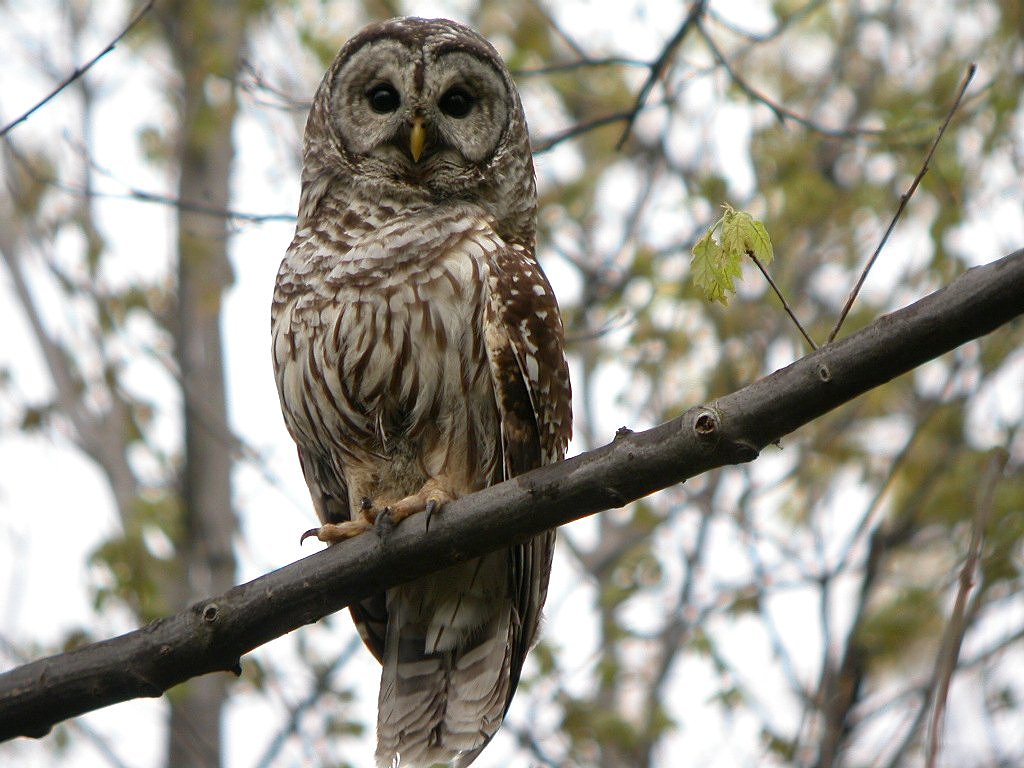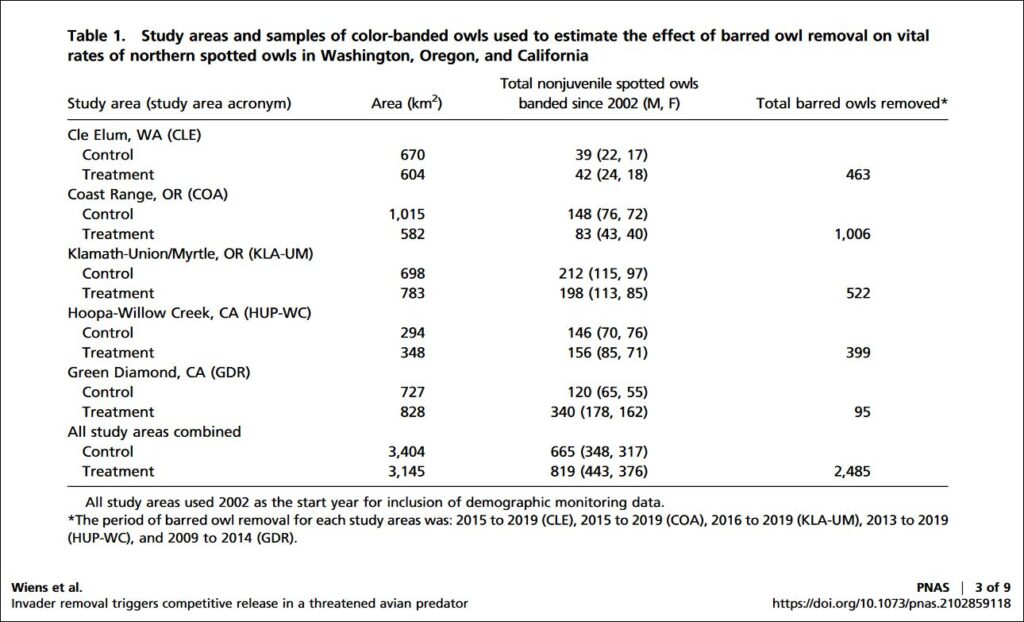
30 November 2023
Sometimes history repeats itself.
In 2013 US Fish & Wildlife proposed an experiment: Kill 3,600 barred owls (Strix varia) in the Pacific Northwest to keep them away from their close relative, the northern spotted owl (Strix occidentalis). Barred owls had spent 100 years expanding westward to the Pacific coast where they became more successful than their habitat-constrained spotted cousins and even interbred with them. Though barred owls are native to North America and moved west on their own, USFW dubbed them “invasive” and proposed killing them wherever found near spotted owls.
Nationwide comments on the culling proposal were overwhelmingly negative but local comments were in favor. The experiment went forward and barred owls were killed according to plan. The final paper describes barred owl “removal”.
Barred owls detected in treatment areas were removed using 12-gauge shotguns and well-established field protocols (20, 22, 23). A total of 2,485 barred owls were removed from treatment segments of five different study areas during the experiment (Table 1). The mean number of barred owls removed per year was highly variable among study areas, ranging from a low of 15.8 barred owls per year in Green Diamond (GDR), to a high of 251.5 barred owls per year in the Oregon Coast Range (COA).
— FWS.GOV Study Results: Invader removal triggers competitive release in a
threatened avian predator
The five locations where removal occurred, called “treatment” areas, and the number of barred owls killed are shown in the screenshot of Table 1.

Interestingly at two of the five study sites — Hoopa-Willow Creek and Green Diamond, California — the killing of 494 barred owls made little to no difference for the spotted owls. Click here for the graph that shows this.
However, USFW declared the experiment a success and recently drafted a new “Barred Owl Management” proposal to continue killing barred owls and expand the project further in California. The draft is currently in its 60-day public comment period: November 17, 2023 – January 16, 2024 during which we are free to express our opinion.
Read about the proposal and download relevant documents at Fish and Wildlife Service seeks public comment on draft strategy to manage invasive barred owls. Click here to submit a comment online or paper-mail your comments to the address below. The comment period ends on 16 Jan 2024.
Public Comments Processing; Attn: Docket No. FWS-R1-ES-2022-0074 U.S. Fish and Wildlife Service Headquarters, MS: PRB/3W 5275 Leesburg Pike Falls Church, VA 22041–380
UPDATE on 1 APRIL 2024: This application has created an uproar. No fooling! see …
A government proposal to kill a half-million owls sparks controversy
p.s. Here’s what I thought of this idea in 2013. I haven’t changed my mind.
Science instructs us that thorough study of the decline should always be the 1st step before any remedies are tried, especially such a radical one as this killing program. That approach has not been taken. This is not the 1st and only instance of the USFW or Department of Agriculture in the mid-west and west of mass killing of birds to “correct” a largely man made problem. It is a quick and dirty approach to claim they are addressing the problem and just move on. It is so knee jerk reaction and such primitive thinking. Also I wonder what the behind the scenes role in this is that of the Timber industry attempting to shift blame from themselves to better enable future logging plans. As always Cherche le money!
Absolutely agree with B.G.’s comment. USFW and the DofA don’t always do what is in the best interest of Wildlife. They do something ‘in the best interest’, and then years later it turns out that it was not. And the wrong thing can’t be corrected. I lived in Oregon for several years, and I can say without a doubt that the logging industry would like to rid the forests of the Northern Spotted owl, as well as the Barred Owl. That has been a fact for years. I believe there is more to this ‘proposal’ than is being told. I am going to read the draft, and they will hear from me.
Thank you for posting this Kate, definitely a lot to digest here. So many thoughtful, intelligent and interesting responses now, and from 2013. It seems like a horrible idea to me.